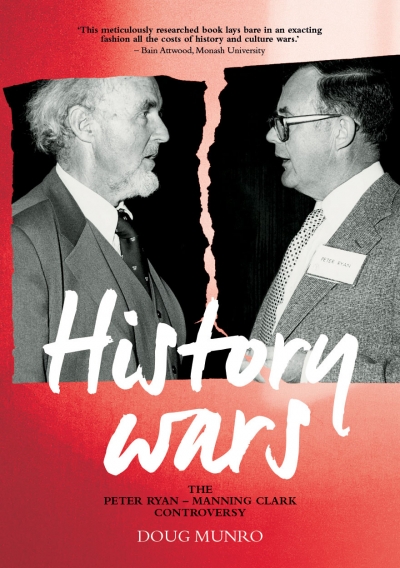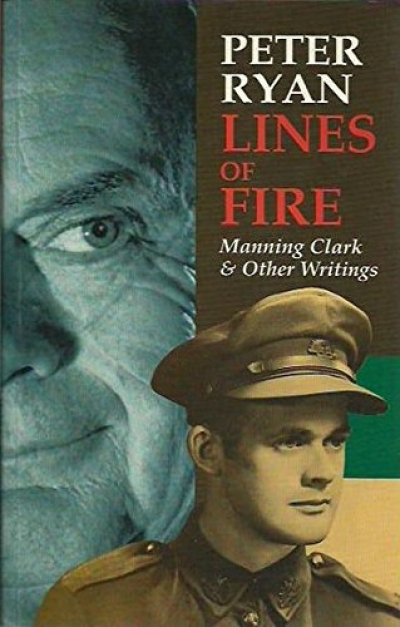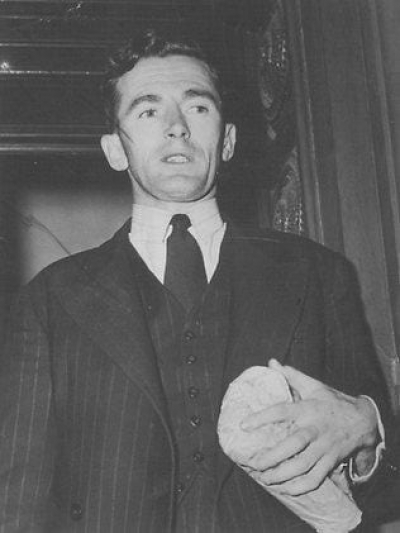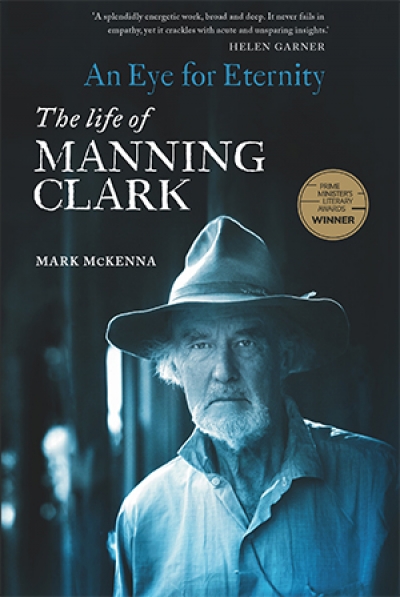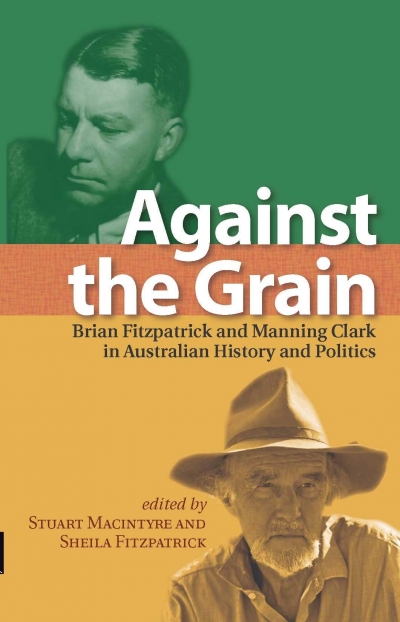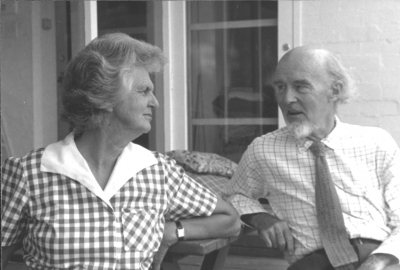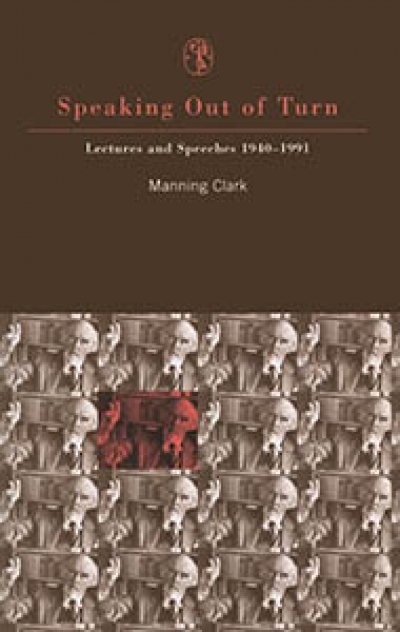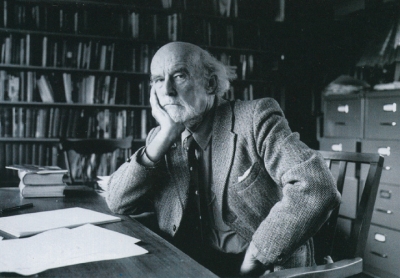Manning Clark
History Wars: The Peter Ryan–Manning Clark controversy by Doug Munro
Lines of Fire: Manning Clark and Other Writings by Peter Ryan
La Trobe University Essay | 'A BIG LIE: Manning Clark, Frank Hardy and "Fictitious History"' by James Griffin
‘People are not entitled in a civil society to pursue a malicious campaign of character assassination based on a big lie.’ This was Andrew Clark, son of the historian Manning Clark, expressing understandable outrage on behalf of his family. The issue was the infamous allegation, based on nebulous evidence, that Manning was ‘an agent of Soviet influence’ and had been awarded the Order of Lenin. Unfortunately, as the Clarks will know, the big lie, even when refuted, spreads across generations. Although the onus is supposed to be on the accusers to prove their allegations, in reality it is easily, plausibly reversed.
... (read more)An Eye for Eternity: The Life of Manning Clark by Mark McKenna
Against the Grain: Brian Fitzpatrick and Manning Clark in Australian history and politics edited by Stuart Macintyre and Sheila Fitzpatrick
Mark McKenna’s analysis of Manning Clark’s Kristallnacht episode (The Monthly, March 2007) – in which he shows that Clark was not in Bonn on Kristallnacht, that he arrived a couple of weeks later, but that in ensuing years he appropriated his fiancée Dymphna’s experience and account and made it his own without any attribution – may be further illuminated, given another dimension, if we look more closely not at Clark, who, as McKenna shows, wasn’t there, but at Dymphna, who was.
... (read more)Speaking Out of Turn: Lectures and speeches, 1940–1991 by Manning Clark
I’ve told this story before, but perhaps I might give it one last run ... There I was at a NSW Premier’s Literary Award dinner, giving the annual address and I wanted to say, in passing, that much verse and most fiction, like most of anything else, are more likely to be products of imitation than of imagination. On the other hand, essays, history, philosophy, prose sketches, social, political and cultural analysis, popularisations of specialist scholarly stuff and all kinds of criticism can at times be more imaginative than verse or fiction – and display greater literary qualities.
... (read more)On 27 May, 1991, Manning Clark, Australian historian extraordinary, was buried from Canberra’s Roman Catholic cathedral by his friend the Jesuit Dr John Eddy, assisted by Professor Clark’s brother, an Anglican canon, and with the participation of his sons. After his death on 23 May, ABC national television had broadcast an interview of 1989 in which Clark had responded to the question of whether he believed in an afterlife with a firm no – to which he added that he saw merit in the response of a Mexican academic encountered twenty years before. On that matter, he harboured ‘a shy hope’. It is a smiling happy phrase, contrasting with the dark fear of future judgement that bedevils so many of the Protestant characters with which he populates his histories. And it was a qualification in harmony, not only with his occasional visits to the church that farewelled him, and earlier St Mary’s Cathedral in Sydney and a multitude of European churches, but also with the ambivalence and perplexity at the heart of the man and his work. Some would call it contradiction or even evasion, but the native Australian sense of having a bob each way is sound policy, and Manning was not one for some pointless cremated affirmation of the kingdom of nothingness when he could have a touch of Catholic ritual and grandeur.
... (read more)Dear Manning,
I’m writing you this letter for want of better ways of continuing the conversation we’ve been having for the past eight years, sustained by weekly letters while I was in Japan. We began to walk and talk in 1983 as you were preparing for heart surgery and I wasn’t coping with a broken heart. You wanted someone to walk with, and I needed company.
... (read more)
